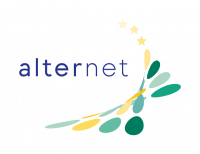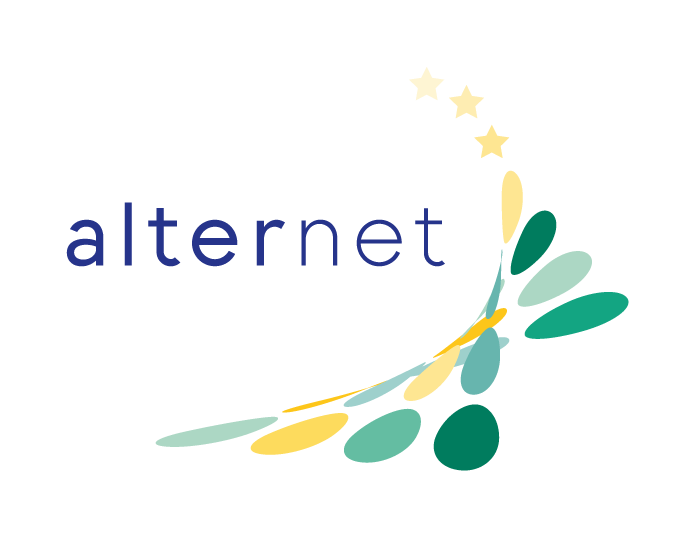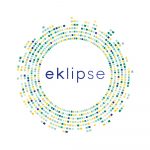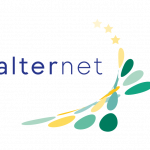About
Fostering the European science-policy interface on biodiversity and ecosystem services.

What we do:
Alternet brings together leading institutes from 20 European countries. They share the goal of integrating their research capability to: assess changes in biodiversity, analyse the effect of those changes on ecosystem services and inform the public and policy makers about this at a European scale.
Alternet enables integration among its network of partner institutes. Transdisciplinary in nature, Alternet partners bring together expertise from both the natural and social sciences and supports platforms for high-impact interactions with policymakers, the scientific community, and the public.
- Facilitating and engaging with the science-policy interface, including through management of the Eklipse mechanism
- Hosting the Alternet Summer School in Peyresq, which has been providing training for young researchers in inter-disciplinary approaches to biodiversity and ecosystems research since 2006
- Bringing together diverse scientific, policy, stakeholder, and NGO perspectives for bi-annual Alternet Conferences, developed in cooperation with the European Commission
- Supporting high-impact research on pressing topical issues facing science and society through the AHIA initiative
- Funding multi-site research projects that take advantage of Alternet’s pan-European facilities through the MSR initiative
- Supporting international partner research and exchange through our Mobility Fund
- Communicating and promoting targeted knowledge transfer with the scientific community, policymakers, and the public
- Enabling international consortium building and internal sharing of funding opportunities through the Call Exchange clearing house mechanism
- Supporting research infrastructure, including the LTER-Europe network of Long-Term Ecosystem Research sites (LTER), Long-Term Socio-Ecological Research platforms (LTSER) and LifeWatch; Alternet was instrumental in developing this major European research infrastructure
- Establishing a vibrant international and interdisciplinary ecosystems and biodiversity research community
Alternet’s History
ALTER-Net I
ALTER-Net began life in 2004 as an EU Network of Excellence (Project no. GOCE-CT-2003-505298, Framework Programme 6). This phase (we call it ALTER-Net I) ran until March 2009, and was coordinated by Terry Parr (NERC CEH, UK). The project consisted of a series of linked Work Packages (WP). Six Work Packages dealt with the integration objectives, whilst a further six covered the joint programme of research. These Work Packages interacted and supported one another, so that the research WPs, in identifying gaps in knowledge, tools, etc., informed the integration WPs, which aimed to develop the necessary tools and frameworks for integration.
ALTER-Net actively promoted interdisciplinary biodiversity and ecosystems research. We launched our annual Summer School in this period, and also developed the pan-European LTER-Europe network of long-term research and observation sites.
A further two WPs were specifically tasked with the ‘spread of excellence’. One WP addressed communication and dissemination, and focused on communication of biodiversity research to the wider community, including other researchers, the media and policymakers. The second dealt with training and mobility issues, so that the necessary skills base for biodiversity research and communication could be strengthened.
ALTER-Net II
After the EU grant ceased in 2009, ALTER-Net relied on financial support from its members. From 2009 until 2011, we also benefited from generous support from the Norwegian Government, which helped to fund the secretariat at NINA (Jiska van Dijk headed the secretariat). In this period of ALTER-Net, we established the ALTER-Net Council and Management Board. Terry Parr remained at the helm, chairing the Council until 2011, before handing over to Eeva Furman of SYKE, Finland. The Secretariat also moved to SYKE at this time. The Management Board was chaired first by Daniel Terrason (CEMAGREF, France), then by Leon Braat (Alterra, Netherlands).
Twenty-two of ALTER-Net’s original partners continued in the network. Membership grew to 27 partner institutes in 18 countries. ALTER-Net helped to develop several project consortia which secured European Union FP7 research funds. We continued to run our Summer School in Peyresq, France and also organised several important events (see Outputs for details). ALTER-Net became active in the Intergovernmental Platform on Biodiversity & Ecosystem Services, and showed its strong support for BiodiversityKnowledge, a network of knowledge aiming to bridge the gap between science and policy. In addition, through its Science-Policy Interface activities, ALTER-Net has established excellent working relations with the European Commission DG Environment and other policy makers. A conference organized by ALTER-Net with DG Environment in April 2013 was instrumental in this.
ALTER-Net III
April 2014 marked ALTER-Net’s 10th birthday and the start of what we are calling Phase III of the network. Maurice Hoffmann (INBO, Belgium) takes over as Chair of the Network Council, whilst Allan Watt (NERC CEH, UK) and Jiska van Dijk (NINA, Norway), co-chair the Management Board. Phase III sees a major revision of our focus areas, although several key activities of ALTER-Net, such as support for long-term research infrastructures, promotion of interdisciplinary research and training via our Summer School, will continue. A major activity is the organisation of our second conference in Ghent, on Nature-Based Solutions.
ALTER-Net IV
Now into its second decade, the network continued with Maurice Hoffmann (INBO) chairing the Network Council and Jiska van Dijk (NINA) chairing the Management Board. We continued with our annual Summer School in Peyresq, France, our High Impact Action and our calls for Multi-Site Research projects. In May 2017, we held our third Ghent conference, Nature and society: synergies, conflicts, trade-offs. 2018 saw the implementation of the ALTER-Net Call Exchange, a clearinghouse mechanism to facilitate collaboration between partners on joint proposals. In 2019, the fourth Ghent conference, entitled The EU Biodiversity Strategy Beyond 2020: Research insights and needs for biodiversity and ecosystem services in Europe was jointly hosted by ALTER-Net and EKLIPSE. This conference saw not only rich discussion of the role of research in shaping the post-2020 European Biodiversity Strategy, but also the official agreement by ALTER-Net to take over the management of the EKLIPSE mechanism in 2020 as part of its commitment to the science-policy interface.
Alternet V
After the agreement to manage the EKLIPSE mechanism, now branded as Eklipse, the ALTER-Net Council decided unanimously at its 2019 Council meeting in Paris to reorganize under a new legal structure as an international non-profit organization. Established by founding members Maurice Hoffmann, Jiska van Dijk, Allan Watt, and Philip Roche, the Alternet Association came into formal operation in Autumn of 2020. Re-commitment of Council members to partnership in the Alternet Association and its new post-2020 Memorandum of Understanding was secured and ALTER-Net, now branded as Alternet, continues into a new stage with newfound legal capabilities (i.e. hiring personnel, sending invoices, and leading/responding to calls and proposals). 2020 also saw close, ongoing collaboration between Alternet and Eklipse as it underwent its transition from an EU project to an autonomous mechanism under Alternet management. This included a revamping of the Eklipse and Alternet logos, branding, and websites by the C32 marketing company and targeted work in task forces aimed at establishing Eklipse as a self-sustaining science-policy interface mechanism.



